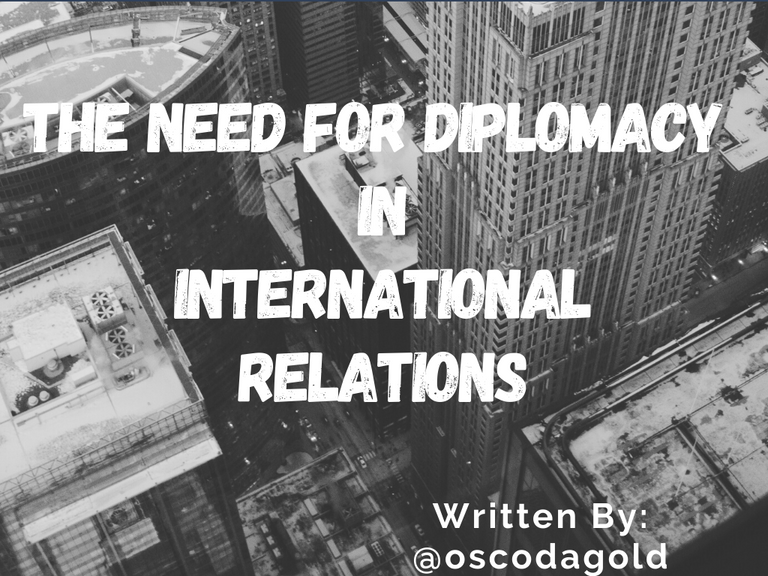
Africa also had it's fair share as there were international relations (especially trade relations) among African nations before colonialism and advent of Europeans into the shores of Africa. This interdependency and relations among nations continued till the 15th century when the Portuguese subsequently followed by other European countries began the inhumane slave trade and other trades with African nations. It later culminated into colonialism after the partitioning of Africa in the 1885 Berlin conference.
During colonialism, nations still related for achievement of certain goals and policies. In West Africa for instance, Nigeria, Ghana, Seirra-Leone and the Gambia came together and formed the National Congress for British West Africa for the purpose of achieving a common goal of the betterment and fair treatment of West Africans by the colonial masters and to attain independence.
Some of the international events that paved the way for the development of the NCBWA were the First Universal Races Congress of 1911, the International Conference on the Negro in 1911, the creation of the African Progress Union and Union of Students of African Descent in the United Kingdom in 1917, and the end of World War 1.
The World war 1 was caused by a lot of factors which were rooted in the deep history of the old powers of Europe including Russia, Germany, France, Italy, Austria, Hungary, and Britain. The real causes of World War I included politics, secret alliances, imperialism, and nationalistic pride. However, there was one single event, the assassination of Archduke Ferdinand of Austria, which started a chain of events leading to war.
World war 2 on the other hand was caused by the impact of the Treaty of Versailles following World War 1, the worldwide economic depression, failure of appeasement, the rise of militarism in Germany and Japan, and the failure of the League of Nations.
It was the failure of such International relations that arouse the need for a new strategy for smooth relations in the international system. Thus, the introduction and adoption of Diplomacy in International Relations.
Diplomacy has no universally acceptable definition i.e it suffers from polysemisity.
However, Diplomacy can be defined as the conduct of international relations by negotiation and dialog or by any other means to promote peaceful relations among states.
Hence the need for the use of Diplomacy in International relations.
Diplomacy advocates the use of negotiations I'm order to arrive a certain agreement without invoking chaos, violent uprising or war.
International organisations like The United Nations (UN), European Union (EU), African Union (AU), OPEC, etc. were all formed and they also operate through Diplomacy.
Due to the aftermath of World war 1 & 2 in particular, the world now craved for perpetual peace and cooperation among countries of the world shunning any act if violence or war.
It's no longer news that Russia has invaded Ukraine with their military forces and military might. Many has speculated and presumed that this could lead to world war 3.
Well... Through Diplomacy, such act of violence between Russia and Ukraine can be prevented as what the two countries need to do is to sit down on the drawing table and have a concrete agreement. With this, there would be no panic, tension, chaos or impending war.
Hence, the need for Diplomacy in International relations right now.